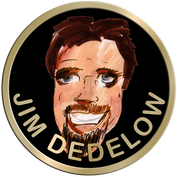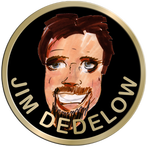I fell asleep watching the Bulls host Phoenix. When I went to sleep, the Bulls were winning by a dozen in the third quarter. Derek Rose had just made a circus shot over the outstretched arms of a Suns forward. When I woke up to trek to bed, they had just lost 103-101 right at the end. Here's what ESPN.com says:
Bulls melt down against Suns, hit low point in Hoiberg era
I'm sure I'm not alone with this. Although our numbers are dwindling, I'm sure that right now in the middle of the night there's a man or woman in another state at another station awake in the middle of the night worrying about stuff at their radio station. True, there aren't that many people in America left who ride their bike to their own radio station and start talking in the morning while looking out the window at their own 400-foot tower. But make no mistake, there are independent operators out there who dedicate their whole beings to local radio. I don't know them, but I know they're out there.
They have to be. There's 12,000 commercial radio stations in America or something like that. Many have been bought up by radio chains... but many have not. Perhaps radio will make a comeback someday. I sure hope so.
The FCC says they're doing their part. It's something called the AM Revitalization Act. This allows you, as an AM radio station owner, to buy an FM translator anywhere within 250 miles of your station and move that translator to your home area. It's a two-step process, really. First, you find an FM translator to buy. And second, you find an open FM translator frequency in your area and move that translator to the frequency in your home area. I know this sounds kind of roundabout, but that's how it's done.
So what does that mean for the lonely AM operator? Honestly, I'm not really sure. I had a professional who deals in these things explain it to me today and I'm still scratching my head if it's something worth pursuing or not. I have committed to move toward digital, not back towards radio. By finding a frequency that the FCC will let me have, and then buying an FM translator to fill that frequency with, I'm moving into FM radio when I really want to be moving into digital radio. It doesn't make any sense.
But you know what does make sense? I'm a freaking radio junkie. And so are the three or four of you, most likely. And the thought of picking up an FM radio station for below market rates piques my curiosity. I'm guessing that's the whole aim of the FCC - pique the curiosity of the independent AM operator, get him or her to buy a translator, and then we'll give him or her a frequency.
Voila. You wind up with an AM operator who now has an FM also. There is one caveat. You can't broadcast a different channel on the FM. In other words, you have to basically re-broadcast on the FM what you already broadcast on the AM. And the contour of the FM signal can't reach outside of where your AM signal reaches. But in the end, having a co-station in the form of FM opens up some possibilities.
Now I haven't researched why other AM operators would want the FM signal. But for me, it opens up the possibility of music. I've got 3,000 albums and I'd just like a chance to play some of them once in a while. You play them on AM and it sounds like you're hearing Lynyrd Skinner through a wall. You do the same on FM and you can simply just hear a lot more of the sound. Fullness. It's not CD quality but close, and that's all you can ask for sometimes.
A few years ago I got to visit WWOZ in New Orleans. My sister-in-law, Laura, played Dixieland jazz in the late morning for an hour and I went in there to sit with her. The manager came in and fiddled with the turntable - yes, the turntable - and I asked him, "What kind of automation system do you use?"
"Huh."
"You know. When you're not live, what system - Simian or so forth - do you use to play the music?"
"We're never not live."
"You mean that 24 hours, seven days a week, someone sits here and plays Dixieland music?"
"Yep."
Now that's something to aspire to. My dream to correspond with the WWOZ reality: find enough people to play vinyl albums in the off hours of WJOB. Live vinyl all evening and weekend when we don't have sports. Having an FM translator brings me one step closer to something that Thomas Edison would never do - invent something no one would buy. Tom said he would not want to invent something that no one would buy. But my question is this: how do you know no one would buy it if you don't invent it?
So there. I'm pretty deep in to learning about FM translators, available frequencies, the FCC auction process and so forth. Probably nothing will come of this but I love radio and so do you so I owe it to da boat of us to at least take a look.

 RSS Feed
RSS Feed
